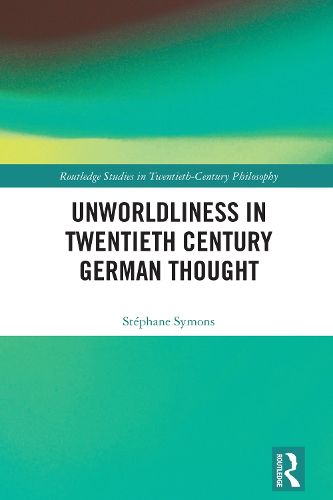Unworldliness in Twentieth Century German Thought
Stephane Symons

Unworldliness in Twentieth Century German Thought
Stephane Symons
What happens when the world around us feels fragmented? How can a person continue to respond positively to their environment when it seems to have lost its internal coherence? These questions lie at the heart of this innovative interpretation of some of the most influential German philosophers of the twentieth century. The key figures in this study are the young Georg Lukacs (1885-1971), Ernst Juenger (1895-1998), Ernst Bloch (1885-1977), Theodor Adorno (1903-1969), Max Kommerell (1902-1944), and Siegfried Kracauer (1889-1966).
By establishing an intellectual dialogue among these otherwise diverse thinkers, this study identifies a common interest: the question whether an unworldly, fragmented universe can nonetheless elicit a creative response from individuals. Together, these authors offer an alternative to what is considered the dominant trend in twentieth-century German philosophy: the phenomenological emphasis on humans' lived interactions with a shared and unified lifeworld. Special attention is given to six distinct interpretations of Miguel de Cervantes's novel Don Quixote and the unworldly actions of its main character.
Unworldliness in Twentieth Century German Thought will appeal to researchers and advanced students interested in twentieth-century continental philosophy, German intellectual history, critical theory, and literature and philosophy.
Order online and we’ll ship when available (12 December 2024)
Our stock data is updated periodically, and availability may change throughout the day for in-demand items. Please call the relevant shop for the most current stock information. Prices are subject to change without notice.
Sign in or become a Readings Member to add this title to a wishlist.


